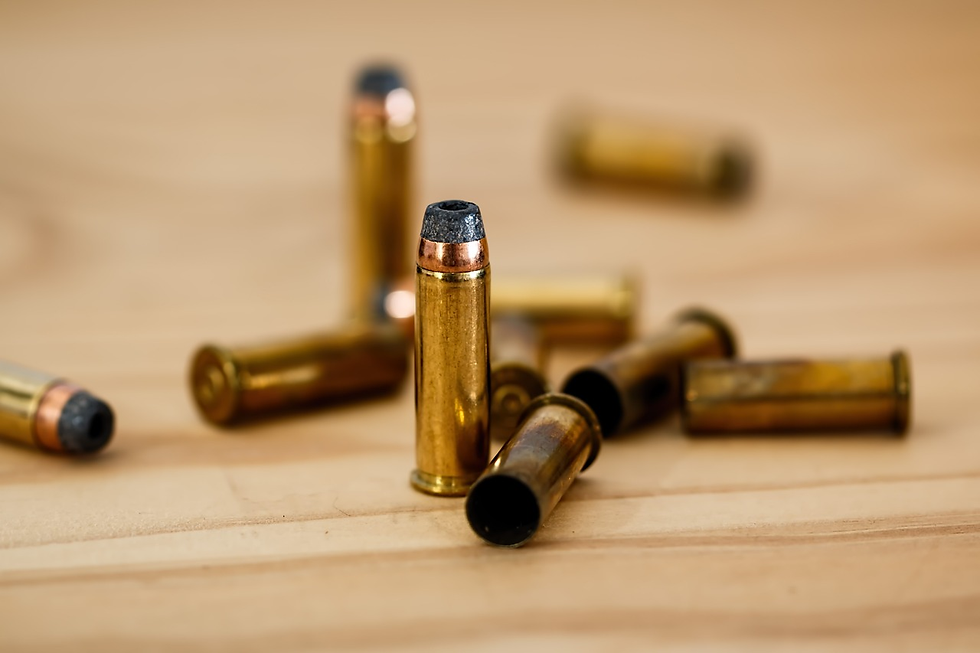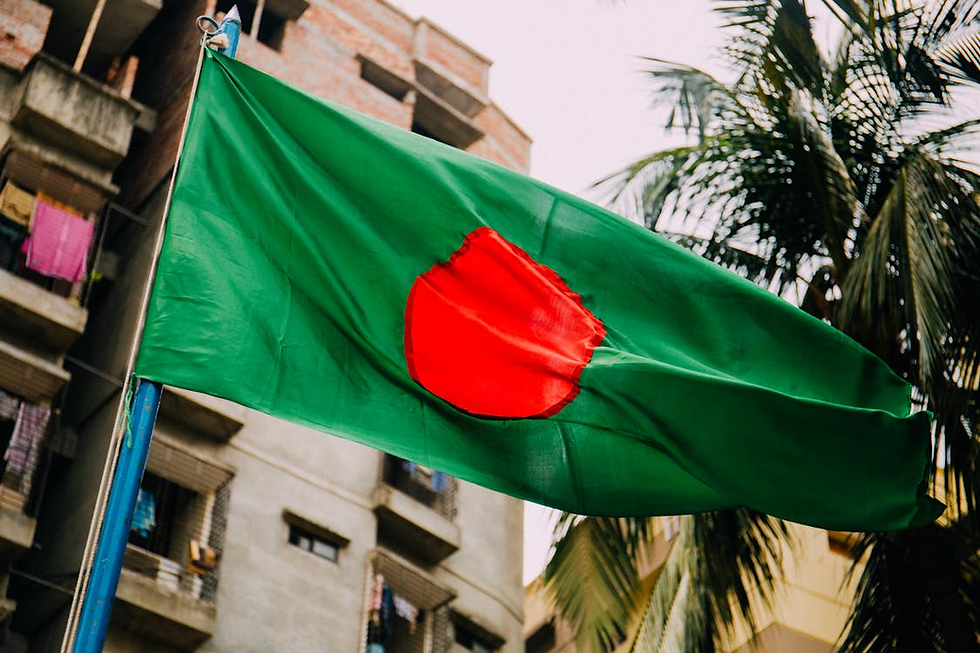10 Shia Hazara Muslims Shot Dead in Balochistan
- Elizabeth Bratton

- Jan 8, 2021
- 5 min read
Updated: Dec 23, 2024
On Sunday the 3rd of January, terrorists abducted and gunned down 10 coal miners from the Shia Hazara Muslim community in Balochistan, Pakistan. Having been kidnapped while on their way to work, the victims were taken to be shot in nearby mountains in the province’s Machh area. Police say that six of the miners were killed immediately, while the remaining five died on their way to hospital. The incident took place approximately 50 km east of the provincial capital, Quetta. The Shia Muslims of Balochistan do not view this slaughter as a one-off, rather the result of years of government negligence and refusal to tackle discriminatory violence.
Terrorists reportedly carried out an “identity parade” of the miners before kidnapping them; Reports suggest the deceased were targeted for their faith, as other miners were left unharmed. A video has since been released of the men’s bodies “strewn across the floor of a small hut”, with their hands tied together. The Islamic State has claimed responsibility for the deaths through their news channel; Prime Minister Imran Khan has described the killing as “an inhumane act of terrorism”. Khan added that he has “asked Frontier Constabulary to use all resources to apprehend these killers and bring them to justice”.

Approximately 600,000 Shia Muslims reside in Quetta. The majority live in “two fortified enclaves” on either side of the city. They are surrounded by high walls and barbed wire, with checkpoints overseen by paramilitary personnel. Residents complain of feeling isolated from the rest of Quetta, which limits business and educational opportunities. Balochistan faces threats from a variety of armed groups such as the Taliban, who have attacked Shia Muslims and nationalist groups striving for independence.
In protest, grieving members of the Shia Hazara community laid the victims’ bodies out on a main road, in an attempt to disrupt the flow of traffic. Masooma Bibi, whose brother and cousin were murdered, pleaded: “He was the son of my aunt, what was his crime? Someone tell me his crime, for God’s sake, someone just tell me what fault he committed?”
Saeed Muhammad Raza, a local leader of the Shia Muslim Majlis Wahdat-e-Muslimeen (MWM) political party, explained: “For 22 years, [our demands] are the same: that our killers are arrested, that their facilitators are arrested and those who lead them be arrested. It is not so difficult to understand this.” He added, “If the rulers do not understand this, then I do not know what their compulsions are that they cannot act against those who lead these terrorists, nor can they act against [the attackers] themselves.” Raza requests that Khan should form an independent judicial commission to continue the continuous violence against the Shia community.
Abdul Manan lost five of his relatives in the shooting. He criticises the “government’s failure”, and demands of Khan that “the killers must be immediately apprehended and punished”. Manan fears that the victims’ families lack the means to support themselves financially, and adds that demonstrators are willing to endure the harsh winter conditions in pursuit of justice. Protesters in Quetta continue to gather around the ten coffins in the street, and are currently refusing to bury the bodies until their killers are arrested.
Protests erupted immediately after the miners’ deaths, with many condemning the government’s constant inaction. In New York, activists held placards that read: “Stop Hazara Genocide in Pakistan”, “Stop killing Shia”, and “+3000 killed, 0 arrested. Who is responsible?”
Similar pleas were visible in Adelaide, Australia. One larger banner read: “Stop Shia Hazara Genocide in Quetta, Pakistan, and Afghanistan.” Other signs stated: “We want justice.” Peaceful protesting also took place in Sydney, where some activists held placards which argued: “It is [the] state of Pakistan’s responsibility to provide safety for their citizens.” Others displayed paintings - one of which depicted the slaughter of worshippers.
Protesters also gathered in Chakwal, Islamabad, Karachi, Lahore, and Multan - according to @shiatweets12 on Instagram. Karachi noticed a particular surge in activism, with police reporting at least 19 sit-ins across the city. The protesters successfully blocked roads, consequently delaying flights. One woman held a sign that read: “Quetta = 115 Attacks. Killed = 1000+. Injured = 2800+. Terrorist[s] arrested = 0. What a justice!”
Shia organisations also hosted a sit-in outside Hyderabad Press Club to criticise violence against the Hazaras. By hosting a protest on the Hyderabad bypass at Wahduwah Gate, the activists also caused a traffic jam along the national highway.
Several demonstrators are asking Khan to visit the vigil which is currently blocking the major highway in Quetta. To these requests, he responded: “I want to reassure the Hazara families who lost their loved ones in a brutal terrorist attack in Machh that I am cognisant of their suffering & their demands.” He promised to visit the bereaved “very soon to offer prayers and condole with all the families personally”, but asked them to bury the bodies without him. On the sixth day of their protests, Khan criticised the Hazaras for their refusal to bury the victims until his arrival. At the launch ceremony of the Special Technology Zones Authority in Islamabad, he stated: You don’t blackmail the prime minister of any country like this”, adding that the activists cannot “impose a condition which has [no logic]”. The PM will only visit the bereaved once their loved ones are buried: a deal that directly contradicts the activists’ goal.
Since the “Islamisation” of Pakistan, Shia Muslims have experienced a heightened threat of violence. Doctors, businesspeople, and intellectuals have all been particular targets for Sunni militants in Karachi. Most victims have been killed by anti-Shia militant groups such as Lashkar-e-Jhangvi and Sipah-e-Sahaba Pakistan, which have links to Al-Qaeda and the Taliban. Despite hoping to eradicate the Shia population, the Pakistani government lifted a ban on Sipah-e-Sahaba Pakistan in 2018. The group’s assets were unfrozen, and its leader was removed from the national terrorist watchlist.
More than 2600 Shia Muslims have been killed in violent attacks in the past 20 years alone. Hundreds of those were Hazaras, victims of “suicide bomb attacks, planted bomb blasts or targeted killings”. On August 16 2012, 25 Shia Muslims were dragged out of buses on Babusar Road, while on their way home to celebrate Eid with their families. Sunni militants associated with Al-Qaeda executed them, while three members of the Hazara community were executed in Quetta on the same day. Almost seven years later, the 2019 Quetta bombing claimed the lives of 21 people, and occurred near a predominantly-Shia community. At least ten Hazaras, nine of which were Shia, died as a result of the attack, alongside two paramilitary soldiers. Radical groups Lashkar-e-Jhangvi and ISIS claimed responsibility for the deaths, confirming that “their [targets] were Hazara people”.
Shia Hazaras have repeatedly asked the Pakistani government for more effective security measures, fearing that the violence remains unabated, and their lives unprotected.

_edited.png)



Comments